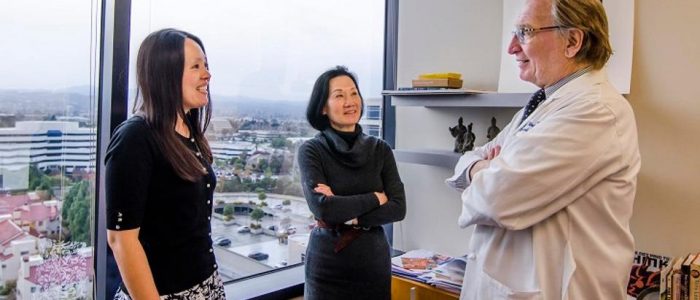An extraordinary model for Healthcare. More Health. The one to watch. Closely.
Reprinted from Forbes Magazine
Hope Lewis saw a need to connect critically ill patients around the world with the best medical specialists in the United States. Lewis’ friends in China were given death sentences because the doctors there couldn’t or wouldn’t provide treatment for some serious illnesses.
In 2008, the Chinese medical community still stigmatized an AIDS diagnosis. In the United States, AIDS patients were given a cocktail of drugs with great success — a normal life span. Standard protocol in China at the time was treatment with one drug. Another friend’s 18-month-old baby had liver cancer.
Lewis brought the critically ill patients to University of California, San Francisco Medical Center (UCSF) to see specialists, with positive outcomes in both cases. But their treatment wasn’t covered by a health plan and was extremely expensive. There had to be a better way.
Wealthy people can afford to fly to the United States to be treated for a period of time, noted Lewis. She wanted to connect all patients who have life-threatening diseases to the best doctors in the United States.
Lewis faced a lot of obstacles in making her vision a reality. First, there was the cost. Flying from another country to the United States and paying cash for treatment is very expensive. Lewis envisioned a virtual medical center, MORE Health, in which the best specialists — including those at Harvard, John Hopkins, Stanford and UCSF — would collaborate on diagnoses and treatment plans with local attending physicians. Local doctors would oversee the treatment plan. Diagnosis is delivered in three days domestically and five days internationally. The difference in timing allows time to translate the plan into the local language.
To truly make MORE Health affordable, insurance needs to pay for it. This is a work in progress. In the United States, some corporate benefits departments have embraced the model, but not the insurance industry as a whole. MORE does work with the largest health insurance companies in China.
Second, Lewis wasn’t a techie. She teamed with her childhood friend, Bo Hu, who had graduated from the equivalent in China of MIT. Together they cofounded the company.
Third, she wasn’t a physician and had no medical knowledge. She brought on a highly regard Chief Medical Consultant, Robert S. Warren, M.D., a professor of surgery and a specialist in gastrointestinal and liver cancer at UCSF. He has been named to the list of U.S. News “America’s Top Doctors” and does research on colorectal cancer.
Fourth, doctors needed protection from lawsuits if there were complications. MORE Health pays for malpractice insurance that protects doctors not just in the United States but no matter what country the patient is treated in. A team of lawyers and insurance experts work on this.
Fifth, protecting patient confidentiality was important not just to patients. It is required by law. Health Insurance Portability and Accountability (HIPPA) is designed to provide privacy standards to protect patients’ medical records and other health information provided to health plans, doctors, hospitals and other health care providers. Lewis hired Timothy Hoffman as the chief privacy and security officer. His experience includes over 30 years in IT security as a U.S. Navy Cryptologic Officer and lead Information security engineer at UCSF Medical Center.
Lewis used her own money to research the market and build the first version of the online hospital. It treated 80 patients. Once she proved the concept, she raised $3 million from New Enterprise Associates (NEA), a global venture capital firm investing in technology and healthcare. MORE Health officially launched in January 2016.
A testament to the success of the company is the work done by a team of doctors from Harvard, Stanford and UCSF who developed a treatment plan for a patient whose late-stage lung cancer had metastasized to the brain.
How can you use the Internet to collaborate, bring down costs, and increase quality and success in your industry?


Comments are closed.